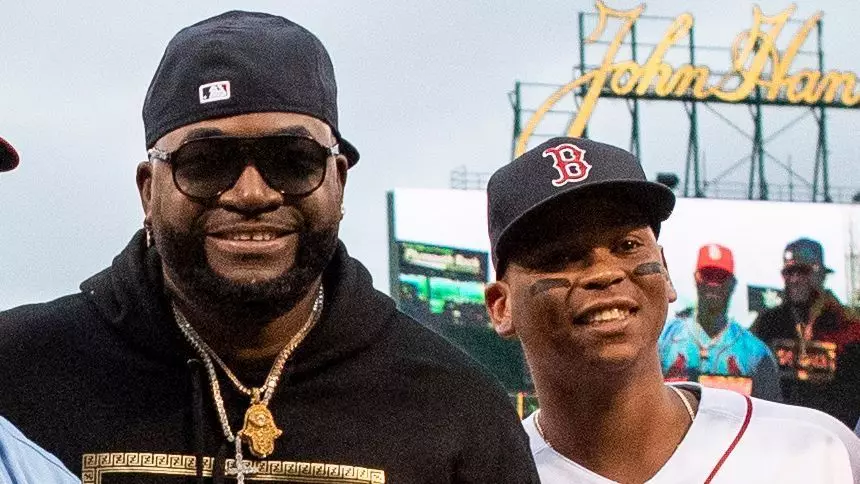In the high-stakes environment of Major League Baseball, the decisions surrounding player positions can sometimes become politicized, leading to unnecessary strain on athletes. This is especially true for players like Rafael Devers, who has been placed under scrutiny as the Boston Red Sox navigate a challenging season. David Ortiz, a Hall of Famer and former Red Sox slugger, has weighed in on the situation, advocating for a player-centric approach. Ortiz’s views underscore a fundamental truth in sports: the importance of allowing athletes to control their own career trajectories rather than forcing them into predefined roles.
Historically, players faced immense pressure to conform to the team’s expectations, often at the expense of their own preferences. Devers, primarily a designated hitter (DH) this season, was brought in under the impression that he would be allowed to focus solely on his batting. The unfortunate injury of first baseman Triston Casas has since complicated these plans, raising questions about whether Devers should be transitioned to a more defensive role. Ortiz suggests that any decision regarding a positional switch should start and end with Devers himself—a refreshing stance that promotes autonomy in sport.
The Evolution of Player Roles
As Ortiz pointed out, the landscape of baseball has shifted dramatically since his own era, when versatility was often seen as a fringe benefit rather than an expectation. Players are now classified with roles so rigidly defined that any deviation from this norm can trigger a frenzy of speculation. Ortiz’s reluctance to advocate for Devers to take on first base reflects an understanding of the mental and physical challenges that come with such transitions.
Devers has already shown he is an integral part of the team’s offensive strategy, boasting commendable statistics despite a rocky start to the season. His current performance, with a .286 batting average and 52 RBIs, showcases his ability to excel when given the tools and the role that best fits his skill set. The rhetoric surrounding his potential transition to first base risks undermining the progress he has made as a full-time DH, suggesting that adjustments should only be made if they align with the player’s interests and readiness.
The Communication Gap
An essential aspect of the Devers-Casual situation is the need for transparent communication between the player and the organization. Ortiz alluded to conversations held during spring training, which reveals a gap between what management discussed and the expectations placed on Devers afterwards. The trip made by owner John Henry to meet with Devers in Kansas City serves as a testament to the importance the team places on its star player, yet it also highlights that any decision regarding positional change should involve a dialogue that prioritizes the athlete’s comfort and capability.
The instinct to place someone like Devers—who has proved effective in the role he was assigned—into a position that may not align with his current objectives can be seen as an organizational misstep. Baseball is a sport that rewards synergy between instincts and roles. Imposing a shift might disrupt not just individual performance but also the chemistry of the team.
A Sustainable Future for Devers
Ortiz’s insights resonate profoundly in the contemporary sports arena, emphasizing that player welfare should be priority number one. Offering Devers the space to either explore first base or to continue dominating as a DH without added stress is crucial. Success in modern baseball relies not just on a player’s physical skills but also on their mental fortitude. The pressure to perform in a new role can have detrimental effects on a player’s performance, and so it is essential that players are guided rather than dictated to.
Ultimately, the Red Sox have a rich history surrounded by fan expectations and media scrutiny. However, the focus must be on cultivating an environment that not only regards the athlete as a talent to exploit but also as an individual with unique preferences and needs. As Ortiz wisely suggests, giving Devers agency over his own career may very well lead the Red Sox toward a more cohesive and potent future. Empowering players to make their own choices might not just benefit them, but elevate the entire team to new heights.


Leave a Reply